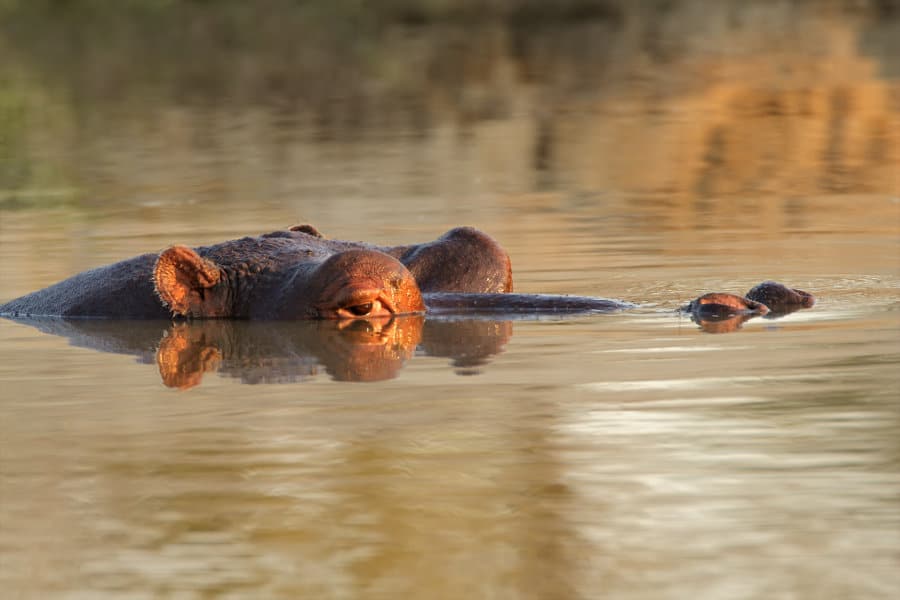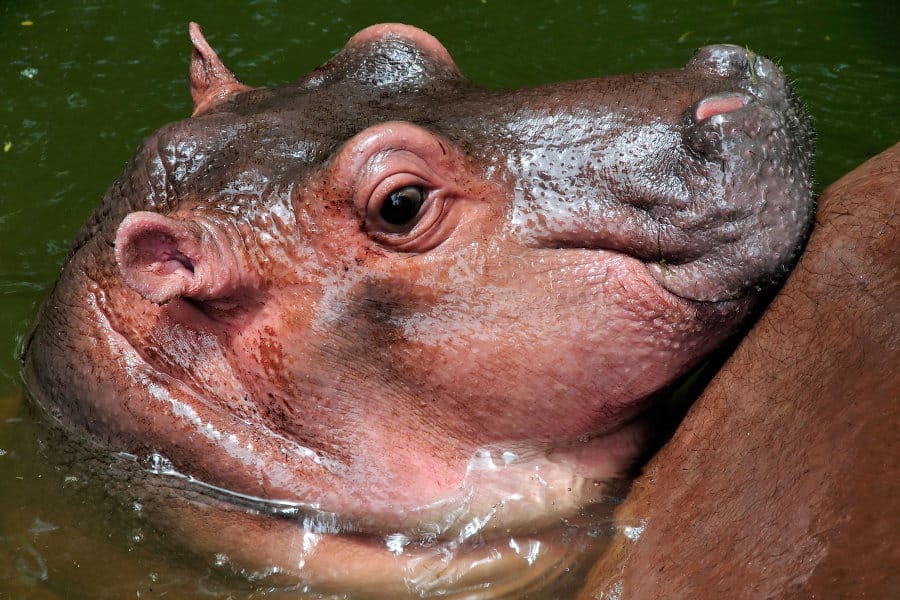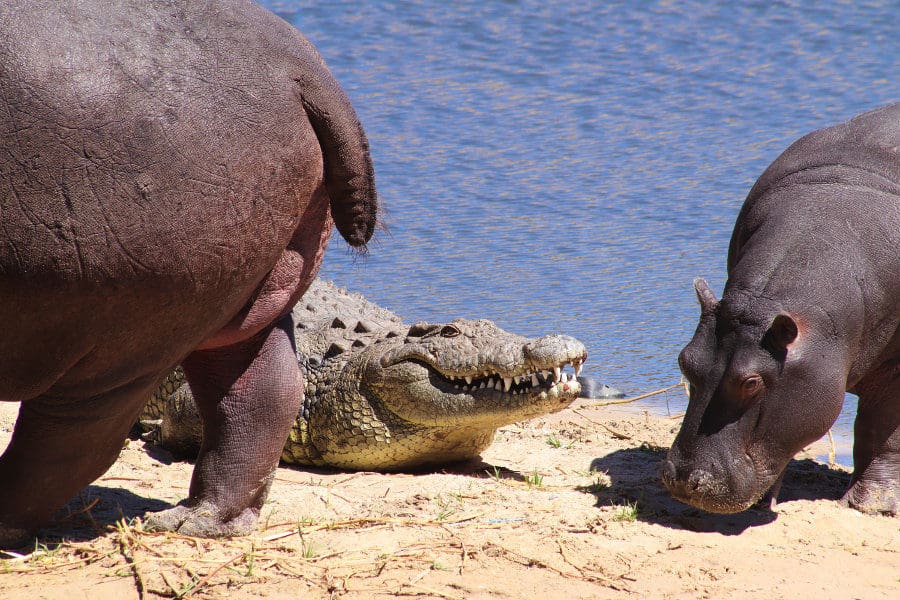Hippos are large mammals that love spending their days in the water. But how long can a hippo hold its breath underwater without coming up for air?
An adult hippo can hold its breath underwater for up to 5 minutes and a newborn can stay underwater for 40-60 seconds before coming up for air.
Since these water beasts love spending their days submerged in rivers and lakes, it’s not surprising that they can spend so much time underwater. Although, they don’t always need to be fully submerged to enjoy it.
With its eyes, ears, and nostrils at the top of the hippo’s face – it can see, hear and breathe with the rest of its body immersed in water.
You’ll be even more amazed by some of the other things that hippos, also referred to as river horses, can do underwater. So, keep reading to find out some more fascinating hippo facts.
How Long Can a Hippopotamus Stay Underwater When Sleeping?
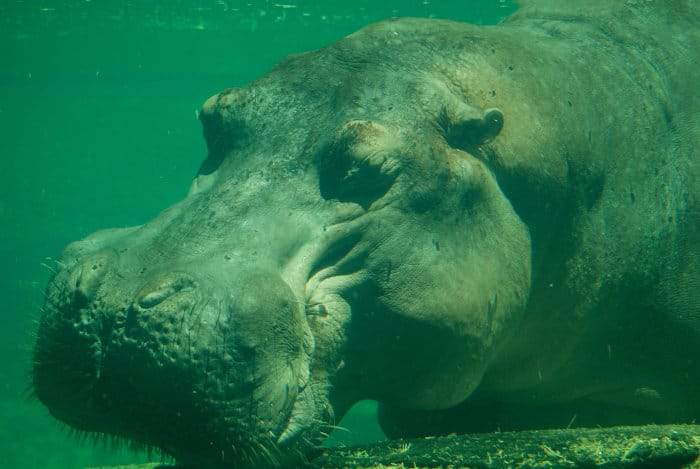
Now, this is going to surprise you – hippos can sleep underwater without having to wake up or open their eyes to come up for air. They have a reflex that allows them to sleep underwater, bob up for air when they need to, and then sink back down without waking up.
Hippos are mainly nocturnal animals, as they spend most of the evening foraging on land for food. This means that most of their sleeping takes place during the day.
Hippos spend about 16 hours a day lounging in the waters of African rivers and lakes. This is generally when they have resting and sleeping periods.
Hippos also have very sensitive skin, so it’s best that they spend most of the day in the water, protected from the harsh African sun.
Does a Hippo’s Birth Happen Underwater?
Female hippos even prefer to give birth underwater. The gestation period for these large mammals is just 8 months. And when they are born, hippo calves weigh between 25 and 45 kg, which is 10 times the size of a human baby.
If the baby hippo is born underwater, the mother pushes the newborn to the surface to get air. It then spends a few days in the water with her baby at her side and without eating. This occurs away from the herd and allows the mother and baby to bond.
Only after a few days, when the baby is stronger and the mother is feeling confident, will they venture out together at night to graze on land.
Baby hippos typically nurse underwater for about 8 months. Female hippos are also comfortable giving birth and nursing on land. However, they usually opt for giving birth in the water where it is safest against land predators.
Although very cute, it’s best not to keep a baby hippo as a pet. Deadly incidents have happened in the past, so the only place these creatures belong to is in nature; wild and free.
Can Hippos Swim?
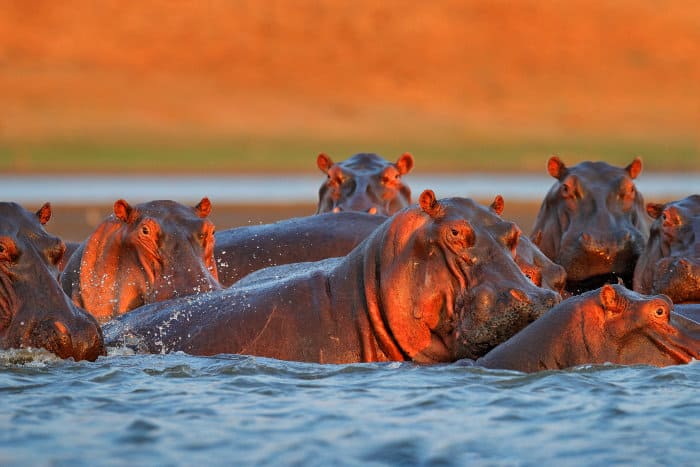
Contrary to popular belief, hippos can’t and don’t actually swim, adult hippos aren’t even buoyant, while calves are. This is pretty strange for a semi-aquatic animal that spends the majority of its time in water and has webbed feet.
Since they are too dense and heavy for swimming, what this large mammal does is walk, trot, jog or run on the floor of the water body. If the water is deep they’ll sink to the bottom and walk at a speed of around 8km/h underwater.
When they are ready to come up, they’ll usually push their hind legs up to resurface, take a breath and then sink back down again.
Can Hippos Run on Land?
So, if hippos can run underwater, does this mean that they can run on land as well? Yes, they certainly can and are able to reach speeds that may shock you.
A hippo can reach a top speed of 30 km/h in a couple of seconds, despite weighing up to 2000 kg. Considering their short legs and that they are the third largest land mammals, that is rather fast.
Hippos normally leave the water in the evenings to graze and may cover up to 9 km of land while grazing. If they feel threatened on land they can pick up speed fast and head back into the water.
Are Hippos Dangerous?
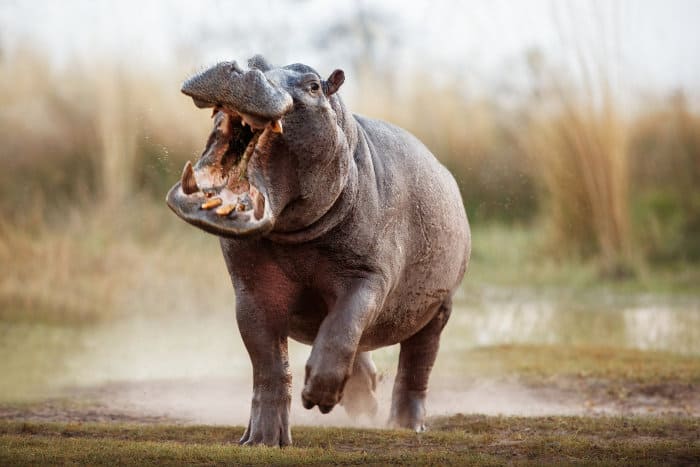
Hippos easily make the list of deadliest animals in Africa (and the world), so yes, they are very dangerous. You don’t want to encounter one on foot, and you definitely don’t want to get in between a territorial hippo and water.
Your best bet to slowing a hippo down would be to run uphill away from water. Yet, even so, you don’t want to find yourself in this situation. A hippo’s huge mouth can easily snap a human in half and they kill an estimated 500 people a year in Africa.
With their large mouths, sharp teeth tusks they can also take down other land animals such as Cape buffalo, kudu, and impala.
Hippopotami are generally moody and unpredictable. So when you do spot these giants in their natural habitat, always remain respectful and mindful that you are in their space.
Learn More About These Semi-Aquatic Mammals
Hippos are a spectacular part of the African kingdom and the things they can do underwater are truly remarkable.
If you are keen to see these large river horses in real life, book a safari. There’s no better way to learn about an animal than by seeing it up close and personal.
Now that you know how long a hippo can hold its breath, check out other fascinating things about them.
